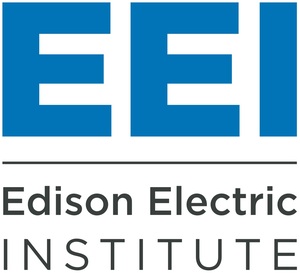New Study: Dividend Tax Hike Will Hurt Millions of Americans At All Income Levels, Particularly Seniors and Retirees
WASHINGTON, July 12, 2012 /PRNewswire-USNewswire/ -- A sharp increase in dividend tax rates scheduled to take effect January 1 will hurt tens of millions of Americans who rely directly and indirectly on dividends, according to a new study prepared for EEI by the accounting firm Ernst & Young. The analysis shows that a dividend tax hike will impact Americans at all income levels—and older investors who are at or nearing retirement age will likely be hurt the most.
Release of the study comes just weeks before an expected House vote on whether to extend the current federal income tax rates, including the tax rate on dividends.
"Dividend income benefits millions of Americans who are not wealthy, including many seniors and those investing for the future of their families," said Lew Hay, chairman of EEI and executive chairman of Juno Beach, Fla.-based NextEra Energy. "Raising taxes on dividends would harm every American who owns dividend-paying stocks, as well as anyone who has an interest in a mutual fund, 401(k) plan, pension plan, or life insurance policy that invests in those stocks."
The current 15-percent tax rate on dividends will expire on December 31, unless Congress and the President intervene. If no action is taken, dividend tax rates for all income levels will increase, with the maximum tax rate skyrocketing to 43.4 percent—a 189-percent increase.
It is impossible to set an arbitrary income threshold at a 189-percent increase in the dividend tax rate that makes good economic sense. Such a staggering tax hike will hurt all investors regardless of their income level. That's because higher-income investors are likely to sell their dividend-paying stocks and turn instead to investments with a lower tax burden that offer more attractive rates of return. Such a retreat from dividend-paying stocks likely will depress stock prices for dividend-paying companies, which ultimately will hurt all shareholders.
In addition, discouraging investment in dividend-paying companies will hurt huge sectors of the economy including, manufacturing, utilities, telecommunications firms, retailers, drug companies, and food producers—that are all critical to economic growth and job creation. Reducing the capital these sectors can raise in equity markets will force them to increase their debt financing. This, in turn, will lead to an even riskier economy with overleveraged companies.
Dividends Important to Older Americans
The study analyzes IRS tax returns filed in 2009, the most recent year for which complete data are available, in order to provide a profile of dividend recipients. Of the 25.4 million tax returns with qualified dividends, 63 percent were filed by those age 50 and older.
With interest rates currently so low, and expected to remain low for several more years, interest-bearing investments (e.g., certificates of deposit) have failed to keep up with the pace of inflation. In increasing numbers, older investors are turning to dividend investments that produce supplemental income. For those living on fixed incomes and counting on dividends to help pay their bills, a reduction in their dividend payments could be devastating.
"This study illustrates the concentration of seniors and middle-income taxpayers relying on dividends," said Jim McCrery, manager of the Alliance for Savings and Investment, a coalition of companies, trade associations and investor organizations. "If the top tax rate is nearly tripled–even if limited to upper-income taxpayers—it is likely that companies would reduce their dividend payouts, which would hurt direct and indirect investors at every income level."
Utility Stocks a High Value Investment
Lower dividend taxes also are particularly critical to the electric power sector, which is investing approximately $80 billion per year to modernize the nation's electric system. Higher dividend taxes would increase utilities' capital costs, which in turn would increase costs to customers.
Ernst & Young found that 62 percent of the 15.6 million tax returns with qualified dividends from direct and indirect utility investments were filed by taxpayers age 50 and older. Electric and natural gas utility stocks provide "above-average dividend yields and below-average volatility compared to the overall stock market." This makes utility stocks especially valuable to investors near or in retirement.
View the report here.
The Edison Electric Institute (EEI) is the association of U.S. shareholder-owned electric companies. Our members serve 95 percent of the ultimate customers in the shareholder-owned segment of the industry, and represent approximately 70 percent of the U.S. electric power industry. We also have more than 65 International electric companies as Affiliate members, and more than 170 industry suppliers and related organizations as Associate members.
SOURCE Edison Electric Institute
WANT YOUR COMPANY'S NEWS FEATURED ON PRNEWSWIRE.COM?
Newsrooms &
Influencers
Digital Media
Outlets
Journalists
Opted In





Share this article